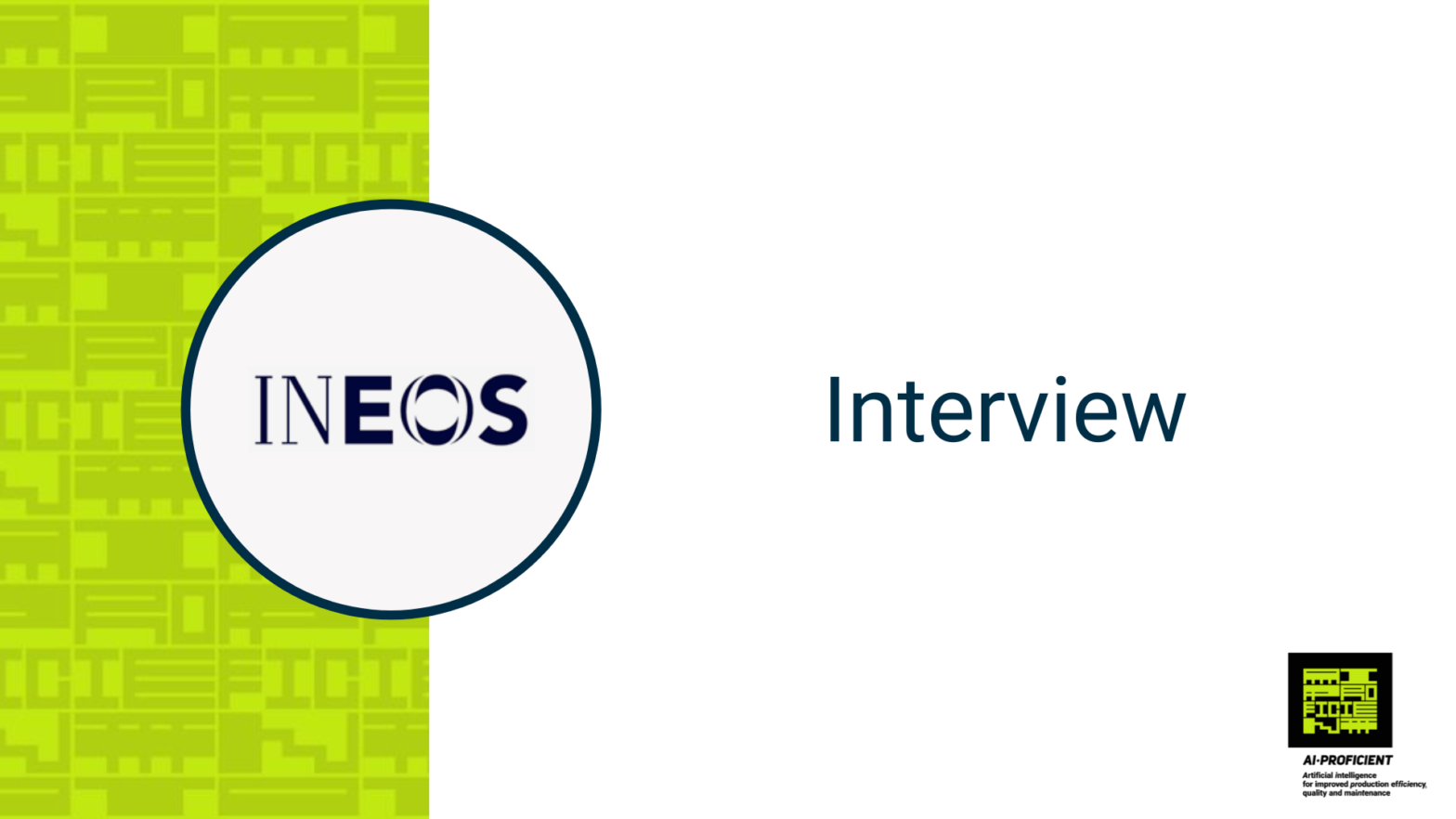
22/06/2022
AI-PROFICIENT Partners Interviews: INEOS
In this exclusive interview with Christophe Van Loock, Manufacturing Excellence Manager at INEOS (Pilot User – Use Case provider), you will learn more about the company’s point of view on:
- How ΑΙ technology benefits the manufacturing industry
- Its role within AI-PROFICIENT and what more or different will INEOS try to encapsulate within the project
- What the company expects to gain from participating in the project
1. Can you tell us about your company?
Ineos is one of the largest chemical companies with activities across the globe. Our products touch every aspect of modern day life. You’ll find our pipe-products when drinking water networks are being built, our medical products in syringes at the hospital, our impact resistant polymers in cars, and so on.
Lately, Ineos has moved beyond petrochemical activities and plays a role in automotive, sports and fashion industries. You might know us from the F1 Mercedes team, the French Ligue 1 team Nice and the Ineos Grenadiers cycling team. Grenadier by the way is the name of the car we are launching this year.
Contributing to a more sustainable world is one of the core Company values, fully embedded in all we do. It’s inspiring and fun to actually make a difference not just in your company but also in the world. In fact, in Antwerp Belgium we are building the biggest petrochemical installation in decades, with a carbon footprint far less than today’s frontrunner installations, a true game changer.
2. What is your company’s role in the AI-PROFICIENT project?
Ineos is one of the two industrial partners in this exciting project. We provide three different use cases spread over two European assets, one in Belgium and one in Germany. We support the technical partners in deploying the developments in a real life industrial environment. Vice versa, the technical partners assist us in solving very complex use cases.
Two of our use cases are quite similar, they both relate to the drift of key process parameters in our continuous processes. We want to have an additional lever, which can help us in keeping these parameters at the desired level, and hope AI technology / machine learning / advanced analytics can help us here. Our third use case relates to reducing and ideally even eliminating human error rate during a routine operator activity. Advanced image recognition should be of support here.
3. What does your organization expect to gain from participating in the AI-PROFICIENT project?
Our teams are used to solving complex technical problems, it’s what they do and what they are good at. Over the years, our processes became more and more efficient, though some complex matters have not found a final solution to drive improvement even further. By cooperating with best in class partners, we expect to enlarge our toolkit to solve problems, and get a breakthrough in the selected use cases.
This breakthrough can be significant. It can increase our annual prime product production capacity in a structural way with a financial impact of well above 1M€ per year, just for these use cases. Imagine if we could translate this technology into all our production assets…
4. From your point of view, what are the most important benefits that AI technology can offer to the manufacturing industry?
We see AI as a key extra toolkit in support of our workers. Throughout the years, our employees have used the best available tools supporting them in their jobs. We see AI as a potential step change giving people this additional supporting tool to drive improvement further. Also for new workers, this can be of great help to give them more confidence whilst learning the job.
It’s something new for us, for sure, but we want to get acquainted with this and fully assess what it could mean for our plants and our industry.
5. Nowadays AI in manufacturing involves using technology to automate complex tasks and unearthing previously unknown patters in manufacturing processes or workflows. What more or different will you try to encapsulate within the AI-PROFICIENT project?
Good question. Our focus is not really on automating complex tasks, it’s indeed more on unearthing previously unknown patterns in our processes which will help our workers in doing their jobs. It gives them an extra insight in the process, allowing them to be more in control to excel in their job execution. AI is not yet fully deployed in our industry, with this project we would like to contribute to changing this.